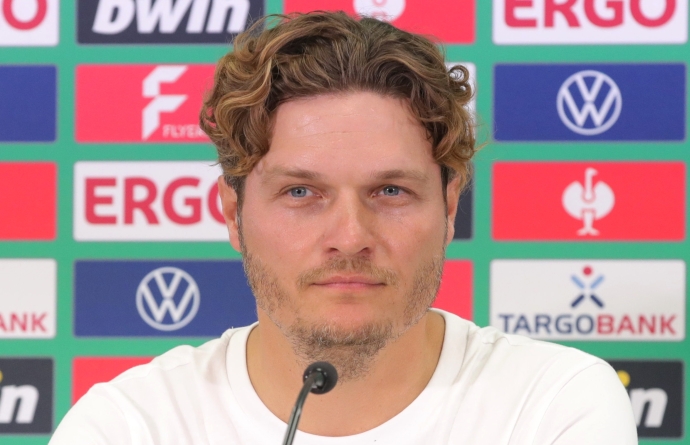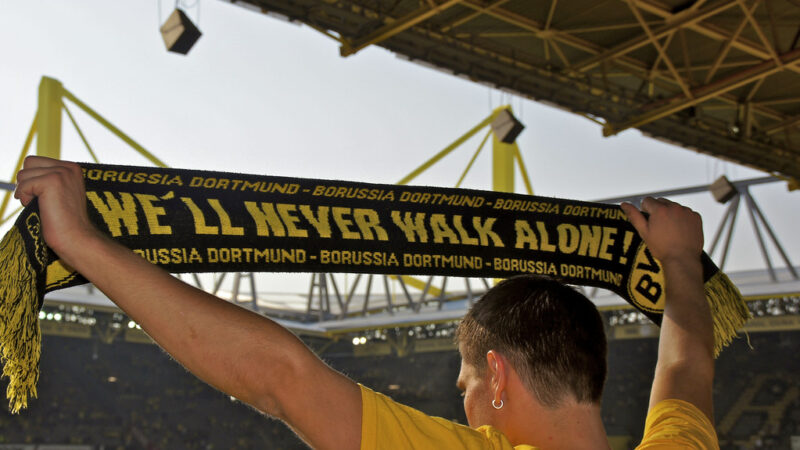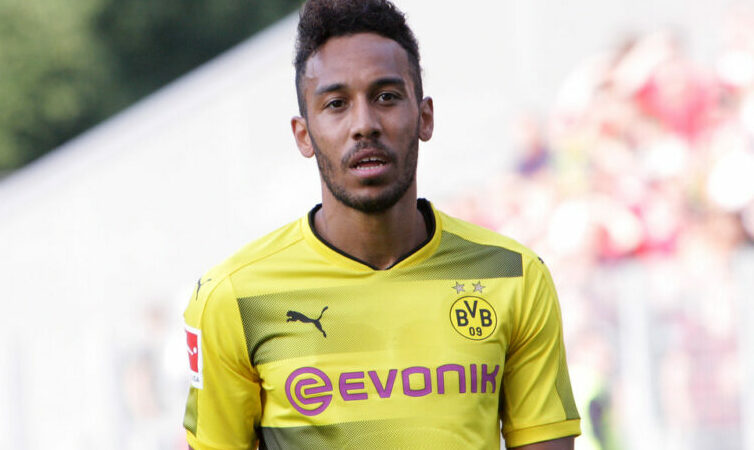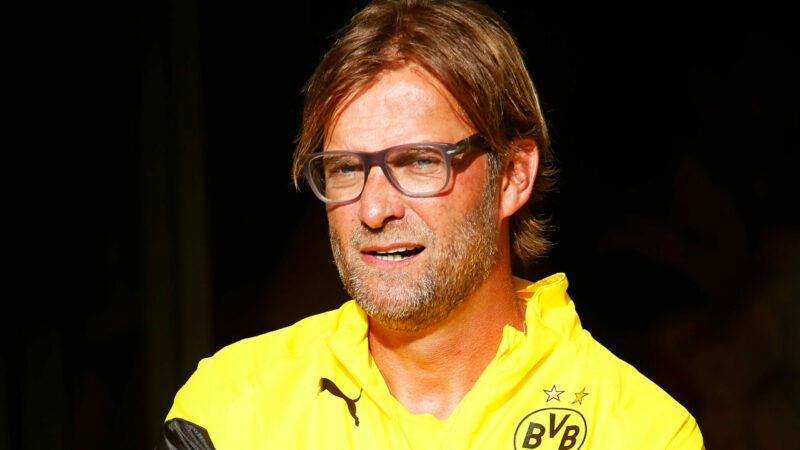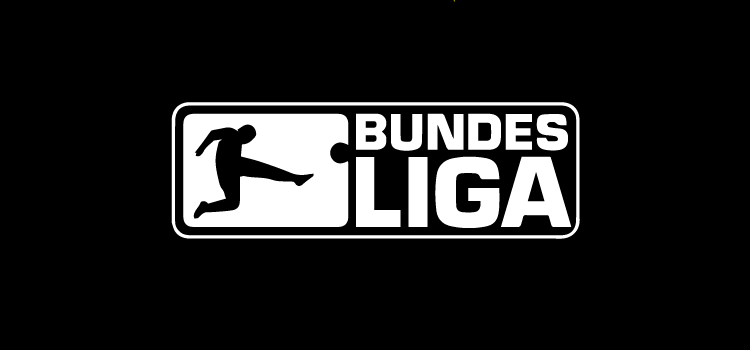Doubting Thomas: Why Bosz Is Succeeding Where Tuchel Did Not

On the surface, it doesn’t make much sense: A young and prodigious manager, given the stamp of approval by Pep Guardiola, unable to make things work at a club stocked to the brim with young and prodigious talent. When Tuchel was named the successor to Juergen Klopp at Dortmund in 2015, he had just spent a year’s sabbatical recharging after a taxing stint with Mainz in which he had garnered a reputation for innovation and maximizing talent. His year away from the game had seen him come into contact with Guardiola, with whom a mutual admiration and passion for tactical intricacies developed. It would set the stage for some of some of the best chess matches the Bundesliga has ever seen when Tuchel’s exciting Dortmund side took on Guardiola’s Bavarian machine, Bayern Munich.
His arrival at the club generated little excitement at first, as his following was not one of casual fans, but soon fans started to understand why the lanky West German was there. Combined with the backroom dynamic duo of Hans-Joachim Watzke and Michael Zorc and a squad of talented veterans, the intellectual but unorthodox Tuchel was immediately a good fit. The club and its players were only just beginning to get over their love affair with previous manager, Juergen Klopp, whose intensity had at first inspired the team to new heights, but more recently driven them into burnout. After 4 seasons that had seen 2 Bundesliga titles followed by two second-place finishes, Klopp’s men looked exhausted and lacking inspiration in 2014/15, particularly with their talismanic striker, Robert Lewandowski having left for Bayern that summer. Things were so dire for a while that it took until Week 21 of the league season for Dortmund to climb out of the relegation zone.
When Tuchel arrived, the team still had much of the core from its title challenging sides of just a few seasons prior, and his stewardship provided a return to form for many of them. This first season under a new manager saw a return of the team to its place in the Bundesliga hierarchy, just below their Bavarian rivals. The team finished as runners-up in both the League and the DFB-Pokal and drew raves for its exciting brand of football. However, this was also the first season in which the hints of an even more radical shift toward youth were on the horizon. Tuchel’s first Dortmund team was full of accomplished, international footballers, but these players were either beginning to age or attract the interest of some of Europe’s better-paying clubs.
The 2016/17 season saw a massive €123 million worth of player sales, supplemented by nearly as much in incoming talent, most of which was young and emergent. However, Dortmund lost a huge chunk of its spine, with Mats Hummels, Ilkay Gundogan and Henrikh Mkhitaryan all depart for greener, wealthier pastures. A glance at the final league table and DFB-Pokal victory do not suggest a club in turmoil, but behind the scenes, a rift had developed. Though Dortmund had brought in some of the best young talents on the planet, Thomas Tuchel was not entirely pleased by the direction of the club. As a tinkerer and deep tactical thinker, Tuchel liked his veteran players, who were tactically astute themselves, well drilled and capable of providing a serious challenge to the reign of Bayern Munich in the league. He did not believe that a club of Dortmund’s stature should have to sell so many of its stars when they had all of the pieces in place to mount a challenge domestically and in Europe.
The disconnect began to show at times on the pitch, with the club never seeming to stream together consistent performances and the defence becoming an alarmingly leaky unit through much of the season. Tuchel’s attempts to innovate his way out of the problem with tactical changes, including his utilization of a back 3 and every conceivable combination of outfield players in the midfield, only increased the confusion amongst his players and the inconsistencies of their performances. The heinous Monaco bus attack that left Marc Bartra injured moved the manager’s rift with the club CEO Hans-Joachim Watzke into the public eye, with Tuchel accusing his boss of forcing the team to play just a day after the incident. Combined with other incidents, including Watzke’s reneged promise not to sell all three stars in the summer of 2016, the signing of Alexander Isak without the manager’s knowledge, and captain Marcel Schmelzer finally criticizing his manager indirectly to the press concerning the omission of Nuri Sahin from an important match, the relationship became untenable, and a Tuchel was gone by the end of May.
With the hiring of Peter Bosz soon after, the club were initially criticized. After all, many thought, what would this late bloomer whose biggest job to date had been just one year at Ajax? As it turns out, quite a lot. As Tuchel repeatedly lost out to Watzke’s favourite talent scout, Sven Mislintat in shaping the immediate future of the squad, his tactics had become too complex and he too temperamental to be a good fit for the increasingly youthful Dortmund team. Ironically, the team’s answer lay in a manager, Bosz, who is 9 years older than the man he replaced. In fact, it was his impressive work with a youthful Ajax side which attracted the club to him in the first place.
The underlying theme to everything Bosz has done at the club is a desire to simplify and unify. With a demeanour somewhere between the charismatic Klopp and the brusque Tuchel, Bosz displays an empathetic warmth to his young players that his predecessor lacked. He has even gotten the core players to buy in to what he is doing, as Aubameyang delayed his departure by another season and Mario Gotze and Nuri Sahin are experiencing career renaissances so far this season. Despite some struggles against two of Europe’s best teams in Champions League group play, Dortmund have yet to lose a match in the league, winning 6 and drawing 1 of their first 7 matches with an astronomical +19 goal difference.
Bosz’s quest for simplification is most apparent in the team’s tactics thus far, with the Dutchman’s preferred 4-3-3 employed in every match so far. Keeping with the unifying theme, his tactics should be familiar to those present when Juergen Klopp was the face of the club, with a front 3 creating constant pressure on the opposition in buildup play, with another trio in the central midfield used to cut out passes on defence and control play in attack. The team is able to focus on direct play or possession play as the situation dictates, a versatility that few teams can match (unfortunately 2 of those teams happen to be in the same Champions League Group).
His tactics, perhaps unsurprisingly, given his successes with Ajax, compliment the youth of Dortmund’s squad perfectly. His Dutch 4-3-3 system has been utilized all over the world, and many young players have been exposed to it in some degree. It’s attacking freedom and high-pressure defence lends itself well to young, fresh legs, with die Schwarzgelben frequently appearing the quicker, better-conditioned side in its matches. The goals, when they come, can start to fly in at an alarming rate when this side hits their stride within a game, scoring 3 or more goals in 4 of their 7 league matches.
Perhaps most impressive of all has been the defensive improvement under Bosz. A nagging problem for Tuchel last season, the defence never looked as composed or organised as they have so far this season under the former Ajax manager. With the additions of Omer Toprak and Dan-Axel Zagadou this summer, the improvement could somewhat be attributed to better talent, but the whole team has defended better as a unit. To the naked eye, players this season seem far more confident in what their responsibilities are, and the tactical consistency has allowed he first team squad to develop more cohesion than was evident at any point last season. The turnaround has been nothing short of remarkable in defence.
Thomas Tuchel is not a bad manager, and should not be remembered in a negative light at Dortmund. His future is undoubtedly bright, with his name popping up repeatedly when discussing potential big club vacancies like Bayern Munich or Arsenal. His tactical nous will undoubtedly find a team capable of playing the way his mind imagines and a kindred spirit within a club’s hierarchy; he is simply too good not to have the opportunity. However, for a young team, only getting younger and deeper in this current football climate, he was not the right manager for this team at this moment. Peter Bosz? Well, the early indications are Die Borussen got themselves a good one.

